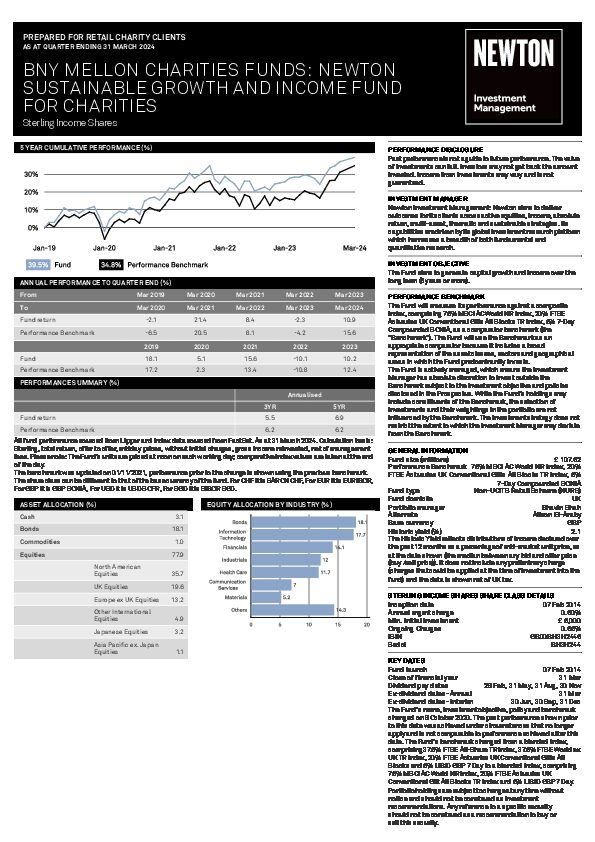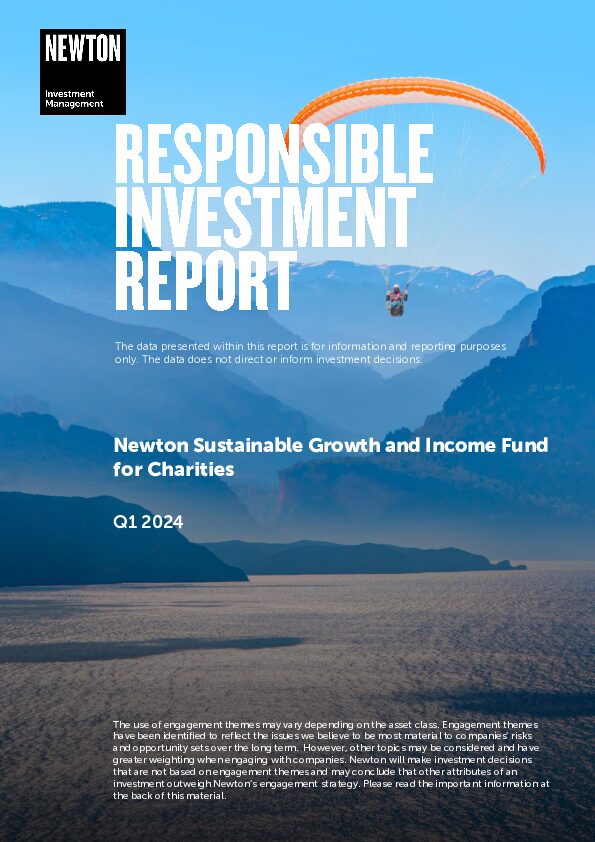Strategy profile
-
Objective
- The Fund aims to generate capital growth and income over the long term (5 years or more).
-
Performance benchmark
-
The Fund will measure its performance against a composite index, comprising 75% MSCI AC World NR Index, 20% FTSE Actuaries UK Conventional Gilts All Stocks TR Index and 5% SONIA (7-day compounded),* as a comparator benchmark (the ‘Benchmark’). The Fund will use the Benchmark as an appropriate comparator because it includes a broad representation of the asset classes, sectors and geographical areas in which the Fund predominantly invests. The Fund is actively managed, which means the Investment Manager has absolute discretion to invest outside the Benchmark subject to the investment objective and policies disclosed in the Prospectus. While the Fund’s holdings may include constituents of the Benchmark, the selection of investments and their weightings in the portfolio are not influenced by the Benchmark. The investment strategy does not restrict the extent to which the Investment Manager may deviate from the Benchmark.
* Please note that on 1 October 2021, part of the benchmark changed from 5% LIBID GBP 7-Day to 5% SONIA (7-day compounded). -
Red lines
- Our ‘red lines’ are built on a combination of exclusions that effectively avoid investments in security issuers involved in or that generate a material proportion of revenues from areas of activity that we deem to be harmful from a social and/or environmental perspective.
-
Literature
-
Investment team
-
- The Newton Sustainable Growth and Income Fund for Charities is managed by a highly experienced team. In-house research analysts are at the core of our investment process, and our multidimensional research platform spans fundamental, thematic, responsible investment, quantitative, geopolitical, investigative and private-market research to promote better-informed investment decisions.
Want to find out more?
Your capital may be at risk. The value of investments and the income from them can fall as well as rise and investors may not get back the original amount invested.
Tax treatment depends on the individual circumstances of each client and may be subject to change in the future. Newton is not a tax expert and independent tax advice should be sought.
Newton will make investment decisions that are not based solely on ESG criteria. Other attributes of an investment may outweigh ESG analysis when making investment decisions. The way that ESG and sustainability criteria are assessed and the evaluation of their suitability for Newton’s sustainable strategies may vary depending on the asset class and strategy involved. For Newton’s sustainable strategies, ESG analysis is performed prior to investment for corporate investments (single name equity and fixed-income securities). The analysis will then also follow the Newton sustainable investment process to ensure it fits with the wider Newton sustainable investment philosophy.










